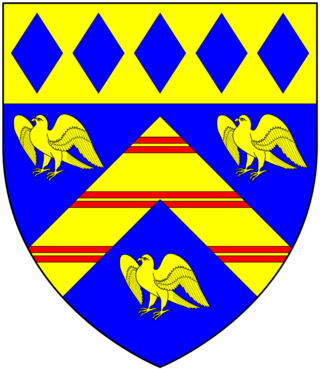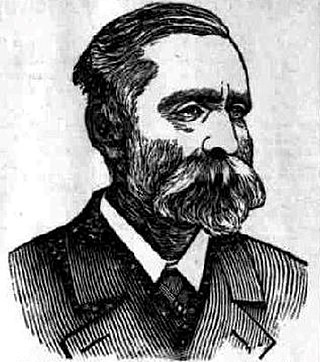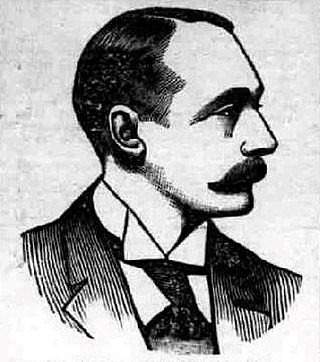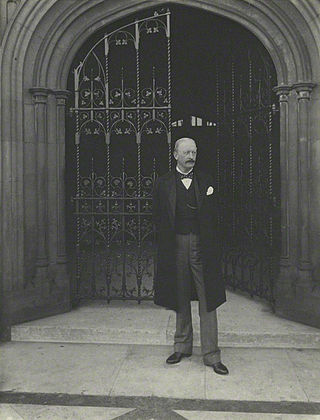
Baron Roborough, of Maristow in the County of Devon, is a title in the Peerage of the United Kingdom. It was created on 24 January 1938 for Sir Henry Lopes, 4th Baronet. He had earlier represented Grantham, Lincolnshire, in Parliament as a Conservative. The Baronetcy, of Maristow House in the County of Devon, had been created in the Baronetage of the United Kingdom on 1 November 1805 for Manasseh Masseh Lopes, a member of a wealthy family of Portuguese Jewish origin, with special remainder to his nephew Ralph Franco, son of his sister Maria. Manasseh Masseh Lopes converted to Christianity in 1802, and later represented Evesham, in Worcestershire, Barnstaple in Devon, and Westbury in Somerset, in Parliament. However, in 1819 he was twice convicted of bribing the voters in both Barnstaple and Grampound in order to be elected to Parliament, and was sentenced to imprisonment and heavy fines. He was also unseated by the House of Commons, but after his release from prison he nonetheless got elected for Westbury, a pocket borough which he controlled to a great extent.

The Cumming-Gordon, later Gordon-Cumming Baronetcy, of Altyre near Forres, is a title in the Baronetage of the United Kingdom. It was created on 27 May 1804 for Alexander Cumming-Gordon, formerly member of parliament for Inverness Burghs. The Cumyn or Cumming family had been settled in Scotland since the 12th century. One member of the family, John II Comyn, Lord of Badenoch, married Eleanor, sister of King John of Scotland. Their son John III Comyn, Lord of Badenoch, known as the "Red Comyn", was a claimant to the Scottish throne through his mother. A later member of the family, Robert Cumming, 13th of Altyre, married Lucy, daughter of Sir Ludovic Gordon of Gordonstoun. Their great-grandson was the first Baronet, who assumed the additional surname of Gordon on succeeding to the Gordon of Gordonstoun estates. The second Baronet sat as Member of Parliament for Elgin Burghs. He changed the family surname from Cumming-Gordon to Gordon-Cumming. The fourth Baronet is best known as a central figure in the Royal Baccarat Scandal.

The Cradock-Hartopp Baronetcy, of Freathby in the County of Leicester and of Four Oaks Hall in the County of Warwick, was a title in the Baronetage of Great Britain. It was created on 12 May 1796 for Edmund Cradock-Hartopp, Member of Parliament for Leicestershire. Born Edmund Bunney, he was the husband of Anne Hurlock, granddaughter and heiress of Sir John Hartopp, 4th Baronet, of Freathby. On his marriage in 1777 he assumed the surname of Cradock-Hartopp in lieu of his patronymic according to the wills of his uncle Joseph Cradock and his wife's grandfather. His eldest surviving son Edmund, the second Baronet, died childless and was succeeded by his younger brother, William, the third Baronet. The title then descended from father to son until the death of his grandson, Charles, the fifth Baronet, in 1929.
This is a list of High Sheriffs of Lincolnshire.

The Wigram Baronetcy, of Walthamstow House in the County of Essex, is a title in the Baronetage of the United Kingdom. It was created on 30 October 1805 for Robert Wigram, a successful shipbuilding merchant and politician, representing Fowey and Wexford Borough in the House of Commons. The second Baronet also represented Wexford Borough in Parliament. He assumed in 1832 by Royal licence the surname of Fitzwygram. The fourth Baronet was a Lieutenant-General in the army and sat as a Conservative Member of Parliament for South Hampshire and Fareham.

The Hogg, later Lindsay-Hogg Baronetcy, of Rotherfield Hall in Rotherfield in the County of Sussex, is a title in the Baronetage of the United Kingdom. It was created on 22 December 1905 for Lindsay Hogg, Conservative Member of Parliament for Eastbourne from 1900 to 1906. He assumed by Royal licence the additional surname of Lindsay before that of Hogg in 1906.

The Price, later Rugge-Price Baronetcy, of Spring Grove in Richmond in the County of Surrey, is a title in the Baronetage of the United Kingdom. It was created on 2 February 1804 for Charles Price, Member of Parliament for the City of London from 1802 to 1812 and Lord Mayor of London from 1802 to 1803. The fifth Baronet assumed in 1874 by Royal licence the additional surname of Rugge. As of 28 February 2014 the present Baronet has not successfully proven his succession and is therefore not on the Official Roll of the Baronetage, with the baronetcy considered dormant since 2000.

The Pechell, later Brooke-Pechell, later Pechell Baronetcy, of Paglesham in the County of Essex, was a title in the Baronetage of Great Britain.

The ffolkes Baronetcy, of Hillington in the County of Norfolk, is a title in the Baronetage of Great Britain. It was created on 26 May 1774 for Martin ffolkes, FRS later High Sheriff of Norfolk and Member of Parliament for King's Lynn. The second Baronet represented Norfolk and Norfolk West in the House of Commons while the third Baronet represented King's Lynn. The fifth Baronet was Honorary Chaplain to Queen Victoria, Chaplain-in-Ordinary to Edward VII and George V and Chaplain to Edward VIII and George VI.

The Hoghton or Houghton, later Bold-Hoghton, later de Hoghton Baronetcy, of Hoghton Tower in the County of Lancashire, is a title in the Baronetage of England. It was created on 22 May 1611 for Richard Hoghton, Member of Parliament for Lancashire. The Hoghton family had been landowners in Lancashire since the reign of King Stephen and had been Knights of the Shire for Lancashire since the 14th century. The second Baronet represented Clitheroe and Lancashire in the House of Commons and was a Royalist leader during the Civil War. The third and fourth Baronets both sat as Members of Parliament for Lancashire. The fifth Baronet was Member of Parliament for Preston and East Looe while the sixth and seventh Baronets represented Preston. The eighth Baronet assumed the additional surname of Bold. In 1892 the ninth Baronet resumed, by Royal licence, the ancient family surname of de Hoghton.

The Buckworth, later Buckworth-Herne, later Buckworth-Herne-Soame Baronetcy, of Sheen in the County of Surrey, is a title in the Baronetage of England. It was created on 1 April 1697 for John Buckworth, High Sheriff of London in 1704. The second Baronet sat as Member of Parliament for Weobley. The third Baronet was Assistant Gentleman Usher to George II. The fifth Baronet was Gentleman-Pensioner and Exon of the Guard during the reign of George III. He married Anne, daughter of Paston Herne, of Haveringland Hall, Norfolk, and assumed by Royal licence the additional surname of Herne. The sixth Baronet assumed in 1806 by Royal licence the additional surname of Soame in compliance with the will of Sir Peter Soame, 4th Baronet, of Thurlow. The ninth Baronet was a member of the Shropshire County Council.

The Fleming, later le Fleming Baronetcy, of Rydal in the County of Westmorland, is a title in the Baronetage of England. It was created on 4 October 1705 for William Fleming, Member of Parliament for Westmorland. The second Baronet was Bishop of Carlisle. The third Baronet represented Cumberland in the British House of Commons. The fourth Baronet was Member of Parliament for Westmorland. He assumed the surname of le Fleming, an ancient version of the family surname. This version of the surname has also been borne by the Baronets from the seventh Baronet onwards. The sixth Baronet, an ordained priest, served as Rector of Windermere.

Sir William Earle Welby-Gregory, 4th Baronet was a British Conservative Party politician.

Sir Charles Glynne Earle Welby, 5th Baronet, was a British civil servant who became a Conservative Party politician. He sat in the House of Commons from 1900 to 1906, and then had a long career in local government in Lincolnshire.
Sir Glynne Earle Welby-Gregory, 3rd Baronet, born Glynne Earle Welby, was a British Tory Member of Parliament.

Sir William Earle Welby, 1st Baronet, was a British land-owner, baronet and Member of Parliament for Grantham from 1802 to 1806. He also served as High Sheriff of Lincolnshire from 1796 to 1797.
Lieutenant Sir William Earle Welby, 2nd Baronet was a British land-owner, baronet and Member of Parliament for Grantham from 1807 to 1820. He also served as High Sheriff of Lincolnshire from 1823 to 1824.

Lieutenant-Colonel Sir Alfred Cholmeley Earle Welby was a Conservative Party politician who served as the Member of Parliament (MP) for Taunton from 1895 until 1906. He had previously served in the British Army, rising to the rank of lieutenant-colonel in 1892. He stood unsuccessfully for the Conservatives in 1885, 1886 and 1892 prior to gaining his seat in Taunton. In 1906 he opted not to stand again in Taunton, but to contest the seat in East Finsbury, but was defeated. He was a London County Councillor from 1907 to 1910, and during the First World War, he was secretary of the Royal Patriotic Fund Corporation.
The Ramsay baronetcy, of Balmain in the County of Kincardine, was created in the Baronetage of the United Kingdom on 13 May 1806 for Alexander Ramsay.

The Fraser Baronetcy, of Ledeclune in the County of Inverness, was created in the Baronetage of the United Kingdom on 27 November 1806 for William Fraser. The third Baronet served with the 7th Hussars in Spain during the Peninsular War, and was on the staff of the Duke of Wellington during the Waterloo Campaign. The fourth Baronet was an author and collector and also represented Barnstaple, Ludlow and Kidderminster in the House of Commons. The fifth Baronet sat as Member of Parliament for Harborough.
















